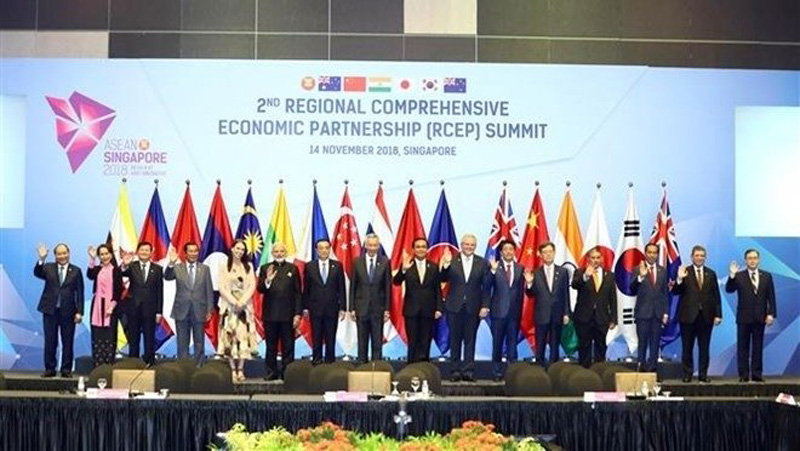



Leaders of RCEP countries pose for a photo on November 14.
At the meeting, leaders of RCEP countries, including ten ASEAN nations and six partners (Australia, China, India, Japan, New Zealand and the Republic of Korea), passed a joint statement on RCEP negotiations. Despite lauding the substantial progress made this year to advance the talks and affirming negotiations are in their final stages, the joint statement also announced the delay of the pact finalisation to 2019.
The postponement came after the parties concerned had failed to attain a common voice as expected during the 7th RCEP Inter-Sessional Ministerial Meeting, held previously in Singapore with aims to finalise the RCEP talks in late 2018. At the meeting, the ministers discussed important orientations to reach consensus on key issues, such as opening markets for goods, investment, services, and intellectual property. In a move to encourage India to join the deal, several RCEP members accepted the reduction of India’s market access level to about 83% instead of 92% as initially set in the RCEP.
As for experts and other officials of RCEP negotiators, the inability to conclude RCEP talks in 2018 year is a pity. Speaking to the media, New Zealand minister of state for trade and export growth Damien O'Connor stated that RCEP talks have attained significant progress, with negotiations currently on the right track, expressing his hopes that the parties will be ready to sign this agreement in 2019. Meanwhile, some leaders and analysts said that the RCEP will face increased difficulties and pressure in the case of prolonged negotiations. Addressing the RCEP Summit, Singapore’s Prime Minister Lee Hsien Loong expressed concern that the extension of negotiations would affect the chance of bringing benefits for businesses and the people in the region.
In addition, analysts said that if the negotiations are not completed soon, the RCEP will lose its "opportunities”, as elections, scheduled to take place in early 2019 in some RCEP participating countries, including India, Thailand, and Indonesia, can potentially impact the time duration for the conclusion of the talks. In addition, it is an urgent task to promptly finalise the RCEP, as RCEP member countries need to reach an agreement in the context of the global economy being affected by trade protectionism.